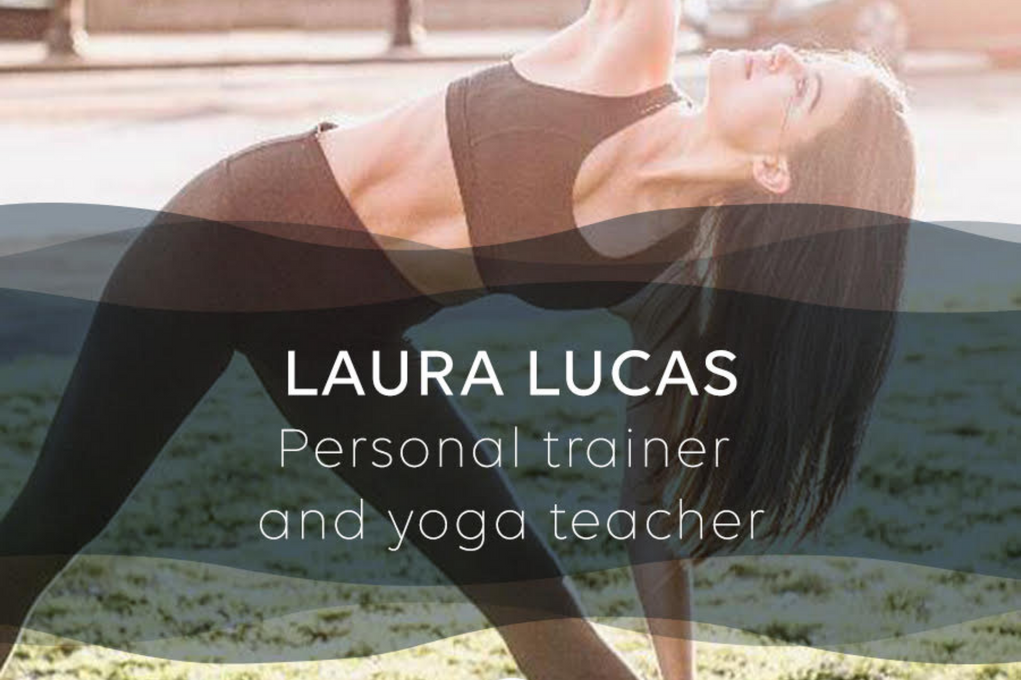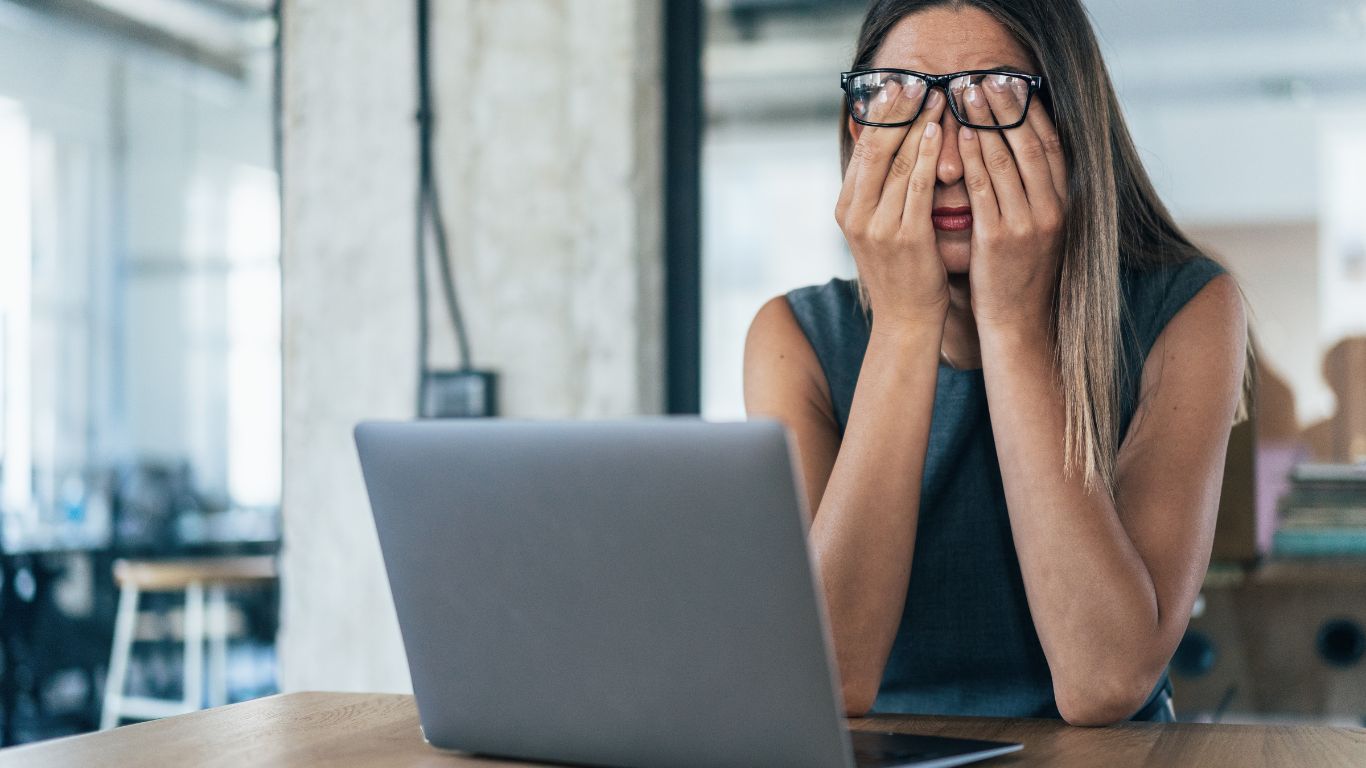Stress & Anxiety Q&A with Personal Trainer Laura Lucas
14th May 2020 / Health
Stress & Anxiety Q&A with Personal Trainer Laura Lucas
Emily Shannon

Laura Lucas is a personal trainer and yoga teacher specialising in pre and postnatal fitness. We know that exercise helps many people to manage anxiety, beat stress, stay fit and hosts an abundance of benefits to our health. It comes as no surprise that many of us will be making good use of our daily outdoor exercise to get some fresh air and clear our minds, it’s so important for us all no matter what our own situation. Laura supports her clients to get the most out of their exercise and yoga routines and specialises in the pregnancy journey. Now is an uncertain time for us all, but perhaps even more for pregnant women, so we caught up with Laura for some expert advice.
1. Many mums-to-be maybe feel increasingly anxious throughout this time, do you have any advice on how they may be able to tailor their exercise and yoga routines to manage their anxiety at home?
It might seem obvious but my top tip would be learning to breathe correctly in whatever exercise you are doing. Your diaphragm, transverse abdominis and pelvic floor muscles should all work together as you breathe — on the inhale your diaphragm moves downwards, your rib-cage and abdominal wall should expand and your pelvic floor should relax. On the exhale your diaphragm moves upwards, your ribcage, abdominal wall and back muscles contract and your pelvic floor should draw upwards. Sitting Down with a hand on your chest and a hand on your tummy, closing your eyes and visualising this breathing technique will significantly reduce anxiety.
Once you have mastered the breathing technique, focus on correct alignment and posture in whatever exercise you choose to do. If having an online trainer isn’t accessible for you there are loads of free pregnancy appropriate workouts online — just make sure you choose a pre/post natal qualified trainer such as Charlie at @bumpsandburpees — Charlie shares loads of great workouts on Instagram, suitable for all trimesters.
2. We often talk about the benefits of exercise for our overall health, but how can exercise provide extra support for women during pregnancy?
As long as your pregnancy is not considered high risk and your doctor has given you the go ahead to exercise, there is a multitude of benefits both physically and mentally:
— Lower risk of gestational diabetes.
— Regular strength training with correct alignment prepares your body for the postural changes and shift in gravity caused by your growing bump (strong glutes are particularly important).
— Appropriate exercise with breath connection (always exhaling on exertion) strengthens your pelvic floor (learning to release you pelvic floor is also important though).
— Regular strength and cardio training improves endurance in preparation for labour, which is the ultimate endurance challenge!
— Training your body through all planes of movement prepares your body for the very physical aspect of caring for your baby when he/she arrives (twisting to put baby in car seat, pushing and pulling the pram, lifting baby out of the cot etc.)
If you don't feel like exercising or can’t exercise during pregnancy for any reason then don’t worry, breath and pelvic floor connection and gentle stretches will still have a great impact on your physical and mental wellbeing during your pregnancy.
3. Are there exercises that pregnant women should avoid during pregnancy? If so, where should the focus be?
This depends on the individual — there are the obvious no-go’s for pregnant women such such as skiing, snowboarding, contact sports (boxing, hockey, football etc) which increase the risk of falling or trauma to the abdomen. High impact exercises such as squat jumps, jump lunges and burpees put a lot of pressure on your joints and pelvic floor so I tend to avoid those with my prenatal clients, there are loads of low impact alternatives. Pregnancy isn't a time to push your body to extremes — exercise at a level where you can hold a conversation throughout.
Any exercises that create excessive doming/ ‘coning’ of the midline (a toblerone shaped protrusion down the midline of tummy) should be modified or avoided, this will differ depending on the individual. Sit-ups, crunches, leg raises, bicycle crunches should be avoided from the second trimester onwards as they put a lot of unnecessary pressure on your abdominal wall. Lying flat on back for extended period of time should be avoided from second trimester (glute bridges are usually fine if they don't make you feel dizzy but you can always modify them by elevating your upper back against a sofa). Some women suffer from Pelvic Girdle Pain, if this is the case, lunges and any exercises standing on one leg or bringing the legs too wide will aggravate the pain so should be avoided.
The focus should be on full body strength, getting your body working in a way that will support everyday movements and make you feel physically and mentally strong. As I said previously - strong glutes are particularly important to support your lower back and growing bump.
4. We know that you are a big fan of yoga, what are your favourite yoga poses to help support and reduce stress and anxiety levels?
My favourites are:
1. Cat/Cow
2. Childs Pose
3. Puppy Dog Pose
4. Wide Legged Forward Bend
5. Supine Spine Twist
6. Shoulder Stand or Legs Up Wall Pose
(Latter X3 are not appropriate for 2nd/3rd trimester of pregnancy)
In each pose always concentrate on your breath, staying in the pose for a while and focusing on lengthening your inhale and exhale — deep breathing lowers cortisol (stress hormone) levels.
5. Do you have any top tips for people that may be new to yoga? How can they start to incorporate it into daily routines - can they start to practice at home?
Start slow and building strong foundations — start with 10 mins a day as this way you are more likely to keep it up. Try not to get fixated on doing the more challenging postures straight away, it takes time to build strength, so stick with it! There are so many amazing online sessions which are free such as Yoga with Adriene, Tara Stiles or any of Julie Montagu’s classes on youtube.
6. What do you feel are the most important benefits of yoga in terms of using it to manage stress and anxiety?
In yoga the breath is always linked to the movement — many of us spend our lives shallow breathing, this will make anxiety and panic attacks so much more likely. Doing regular yoga gives you a time in your day when you are concentrating on the breath and the asanas (postures) so your mind gets a break from worrying about everything else.
7. When things start to go back to normal, do you have any advice for people trying to fit exercise into busy schedules?
My top tips would be:
— Pre-plan a realistic exercise schedule at the beginning of the week, I like to write it into my diary (yes I still have an old school diary!), this way I find I’m much more likely to stick to my schedule.
— Find a class you enjoy, there are so many online fitness classes now so there is something for everyone — doing an online class means you can slot into your schedule pretty easily.
8. Do you find using breathing exercises can help to bring calm during stressful situations or when anxiety is high? Do you have any top tips for other people that might want to include this in their daily routine?
Definitely! You can link breathing techniques into your exercise regime, or you can sit and listen to a meditation app such as Head Space. I have to admit I'm not the best at using these apps as I use yoga, strength training or running as my meditation but they are a great alternative if you don't feel like moving.
If you want to find out more about Laura, then head over to her website or check her out on Instagram where you can find a whole host of home workouts to help keep you busy in isolation! You can also find the Q&As from our other experts Chloe Brotheridge and Libby Limon to help to best stress and reduce anxiety during these turbulent times!
From The Blog
-

25th February 2025 / Health
Empowering Women’s Health: Key Supplements for Well-being
Women’s health is a lifelong journey, with each stage presenting unique nutritional and wellness needs. From maintaining energy levels to supporting hormonal balance and bone health, the right comb...
Read article -

17th February 2025 / Health
Empowering Women’s Health: Lifestyle Tips and a Key Supplement for Perimenopause and Menopause
NaomiWomen’s health evolves through various life stages, and the transition into perimenopause and menopause brings unique challenges. During these phases, hormonal fluctuations can lead to symptom...
Read article -

10th February 2025 / Health / Products
The Best Foods and Drinks to Help Your Body Recover from Burnout
Burnout is a growing issue in today’s fast-paced work culture, leaving many people feeling exhausted, overwhelmed, and depleted. While rest and self-care are essential, nutrition plays a crucial ro...
Read article



